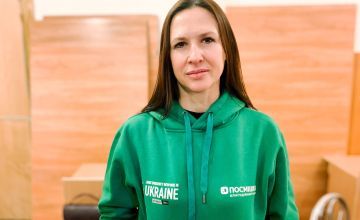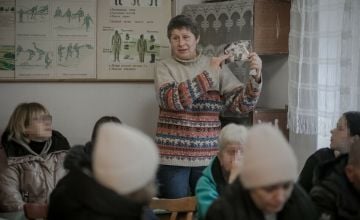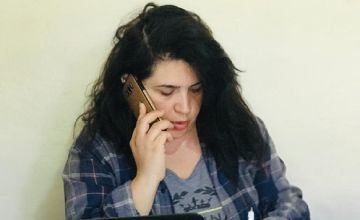
Knowledge Hub
Psychosocial support is a vital but little-known humanitarian response in times of crisis. It’s also becoming an integral component in our development programmes — particularly for women and children. In this piece, we explore what psychosocial support is and why it is fundamental to humanitarian response, and beyond: helping women to rebuild their lives, from Afghanistan to Ukraine, from Lebanon to Bangladesh.
Most people need someone who can hear them, who they can feel comfortable with – easy to talk to. I like to listen. I am very interested in helping people to advocate for their rights, to build their confidence.
What is psychosocial support?
Psychosocial support (PSS) is the provision of emotional and psychological assistance to individuals or groups who have experienced or are experiencing a crisis, traumatic event, or other difficult circumstances.
Psychosocial support, known in UN agencies as mental health and psychosocial support (MHPSS), encompasses a wide range of interventions and approaches that aim to promote mental and emotional well-being, alleviate distress, and foster resilience and social connectedness.
These can be provided in various settings, such as healthcare, education, social services, and humanitarian contexts, and may involve individual or group counselling, peer support, skill building, community mobilisation, and advocacy, among other strategies. The goal of psychosocial support is to empower people to cope with challenges, rebuild their lives, and participate in their communities with dignity and respect.
Psychosocial support empowers women to cope with challenges and rebuild their lives.
Psychosocial support is particularly important for women and children because they are often more vulnerable to experiencing the negative effects of a crisis, such as displacement, conflict, or natural disasters.

Psychosocial support for women and children
During crises, women may experience a range of psychosocial challenges, including depression, anxiety, trauma, and gender-based violence, which can have long-lasting effects on their mental and physical health. They may also face social and cultural barriers that prevent them from seeking or receiving appropriate support, such as stigma, discrimination, and limited access to resources.
Similarly, children may experience various forms of distress and disruption, such as separation from their families, loss of loved ones, displacement, and disrupted education. These experiences can have negative effects on their emotional and social development, leading to difficulties with relationships, behaviour, and mental health.
Psychosocial support can help women and children to cope with these challenges, restore a sense of safety and stability, and promote their well-being and resilience. It can also address the underlying social and systemic factors that contribute to their vulnerability, such as gender inequality and lack of access to basic services. By investing in psychosocial support for women and children, we can help to create more resilient, healthy, and empowered communities.
By investing in psychosocial support for women we help create resilient and empowered communities.
Just over 10 years ago, Concern led the way in supporting isolated health professionals whose own needs were being ignored. In what became the precursor to developing psychosocial work across our programmes, we launched the ‘Helping Health Workers Cope' pilot in Kono District, Sierra Leone.
Implemented with the Community Association for Psycho-social Services (CAPS), the pilot enhanced health workers’ coping mechanisms in such low-resource environments, and included counselling and training in stress management, self-care and client care.
Psychosocial support in a humanitarian context
Ever since, psychosocial support has become an integral part of our humanitarian response. Psychosocial support in humanitarian contexts involves a range of interventions and activities aimed at addressing the psychosocial needs of individuals, families, and communities affected by crises.
Concern designs interventions based on strong and well-maintained contextual analysis. Before considering the integration of PSS into programming, Concern prioritises addressing basic needs, including nutrition, shelter, water and sanitation, and security. Without basic survival needs being addressed, individuals and communities are not able to meaningfully engage in ongoing interventions such as PSS programmes.
Concern provides psychosocial support in a humanitarian context through two avenues: prevention and response.
-
Prevention focuses on awareness sessions, centred on topics such as communication, anger management, and learning coping mechanisms for difficult situations.
-
Case management response involves working with individuals, responding directly to the psychological and social needs of that person and referring them onward for more specialised support when appropriate. This is particularly vital after an emergency when people need to find positive coping mechanisms to cope with a new traumatic situation.
Women and psychosocial support, in context
Ukraine
With martial law still in place, and many men on the frontlines, those left behind are predominantly women and children.
As of November 2022, there were 11.5 million people in need of protection assistance in Ukraine. The most frequently reported protection risks include, but are not limited to:
-
exposure to shelling and armed violence
-
family separation
-
the absence of identity documents
-
lack of freedom of movement.

Kateryna

Kateryna left her hometown with her daughter in March 2022, after spending three weeks in a region frequently shelled and bombarded. She has since attended four group PSS sessions and has found them useful: “It helps that you can cry and speak out.”
“It is interaction with people who have suffered and faced the same circumstances as I did. When you speak out, they understand what you mean. A person who reads about the conflict – they define it as a story – but these people have heard the humming of the aircraft taking off or before the bombardment. When we discuss this, we understand what other people mean. The people who are here survived this. They can cry, I can cry.”
Lebanon

Psychosocial support does not end when the women and children fleeing from conflict or natural disasters find safety – temporary or permanent. It needs to be adapted to a context in which families are looking to establish new lives and livelihoods but need protection and the right support.
Lebanon is one of a range of countries and territories that host large numbers of refugees attempting to recover from severe trauma. Siba Bizri has worked for Concern in Lebanon for many years. She began working in Child Protection, moving over to psychosocial support case management a few years ago. Prior to the devastating explosion in Beirut in 2020, the psychosocial support team in Lebanon was already responding to two emergencies: the Syrian crisis and the spread of Covid-19.
During lockdown, the team had to work remotely. A 24-hour hotline was set up, with many women and children requesting protection services and help to secure basics such as food, shelter, and medicine. They also had a helpline for mental health assistance and Gender Based Violence (GBV), through which we can refer anyone who needs more than basic counselling to specialised services.
Siba explains that women suffering from IPV (intimate partner violence) used the hotline the most, particularly during the pandemic when IPV dramatically increased: “It was very busy in those times.” UN Women has described the worldwide increase in domestic abuse as a ‘shadow pandemic’ alongside Covid-19.
“Most people need someone who can hear them, who they can feel comfortable with and easy to talk to. I like to listen. I am very interested in helping people to advocate for their rights, to build their confidence. Especially Syrian women – they don’t have any relatives in Lebanon. Through our support, they have gained confidence in expressing their feelings and are comfortable talking to a case worker who can understand them and listen to them.” – Siba
Most people need someone who can hear them, who they can feel comfortable with and easy to talk to. I like to listen. I am very interested in helping people to advocate for their rights, to build their confidence. Especially Syrian women – they don’t have any relatives in Lebanon. Through our support, they have gained confidence in expressing their feelings and are comfortable talking to a case worker who can understand them and listen to them.
Women, psychosocial care and livelihoods
In addition to an emergency setting as outlined above, psychosocial support is a big part of our development programmes that aim to help women escape extreme poverty for good. In this context, psychosocial support goes beyond the initial crisis and helps women rebuild their lives.
Our Graduation programmes are sequenced development packages modified to people's circumstances. They provide the ‘big push’ people need to escape the poverty trap. The approach encompasses four main pillars: social protection, livelihood promotion, financial inclusion and social empowerment. Once refugees or generationally poor communities have begun to address their basic needs, social and political assets need to be secured and strengthened in order to address the root causes of poverty.
Graduation is time and effort-intensive, and psychosocial support is integral. Caseworkers regularly visit the households that are taking part and refer them to specialist providers if needed. This can be treatment for malnutrition or antenatal care, but also GBV and psychosocial services. But the impact of psychosocial interventions can only be limited if other factors affecting well-being are not simultaneously addressed. Therefore, it is important to ensure that PSS interventions are strongly connected to programmes, actions or mechanisms addressing the various levels of support needed and that there is a holistic understanding of the individuals and communities.
Since 2008 our graduation programmes have helped over 125,000 women and men, in nine countries, change their lives for the long term.
In Afghanistan we developed a comprehensive life-skills manual and, in Bangladesh, support for ‘invisible’ pavement-dwellers incorporates advocacy for ID. Our psychosocial work is always context-specific and always evolving.
We are now developing a research proposal that focuses on social capital as a factor in enhancing people’s resilience to shocks: what makes people resilient? What ‘softer’ aspects contribute to resilience at individual, household and community level?
Women supporting women
Other ways to help
Donate now
Give a one-off, or a monthly, donation today.
Join an event
From mountain trekking to marathon running, join us for one of our many exciting outdoor events!
Buy a gift
With an extensive range of alternative gifts, we have something to suit everybody.
Leave a gift in your will
Leave the world a better place with a life-changing legacy.
Become a corporate supporter
We partner with a range of organisations that share our passion and the results have been fantastic.
Create your own fundraising event
Raise money for Concern by organising your own charity fundraising event.





